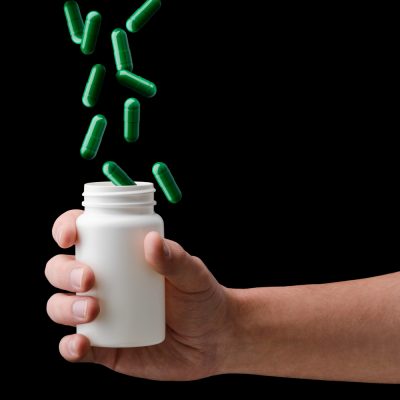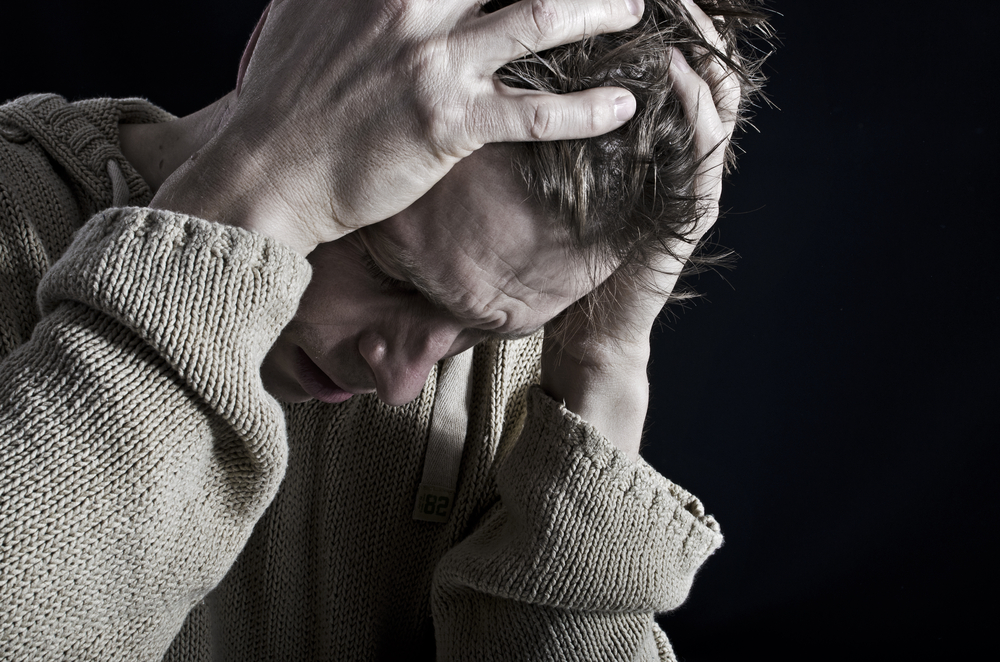In the past decade, the world has become more aware of the persistence of mental health problems that are deeply embedded in our society. In the 1980s, the public didn’t give mental health the attention and seriousness it demands. In 2020, however, you can spot mental health issues and anxiety disorders in every direction you look.
Almost every behavior that deviates outside the norm can be interpreted as a behavioral problem. Different folks exaggerate and downplay health issues that it’s difficult to determine which problems require the attention of a trusted friend, or qualified health professional.
Anxiety, for example, has been interpreted in a number of ways. Anxiety could either be a persistent reaction to stress, or the general feeling of unease. According to the American Psychological Association, Anxiety is an emotion characterized by feelings of tension, worried thoughts, and physical changes like increased blood pressure.
Mental health issues that are caused by emotions of fear and anxiety are classified as anxiety disorders, which include phobias, panic attacks, social anxiety, post-traumatic stress disorder, separation anxiety, obsessive-compulsive disorder, and selective mutism.
Testosterone and Anxiety
Testosterone is the male hormone that is practically involved in almost every major function of the body, including your physical, mental, and sexual health. Many have speculated that low testosterone levels can trigger anxiety disorders, and this could be largely due to the lack of stimulus in the androgenic receptors in the brain.
The body is packed with androgen receptors, and many of these could be found in your brain. These receptors interact with testosterone, and its reaction causes its androgenic response, such as sexual arousal, confidence, and the alpha male personality.
The direct link of testosterone to a person’s behavior may imply that testosterone may also have an impact on stressors and the body’s response to stress and anxiety.
We dug deep to discover the mechanics between testosterone and how it affects a man’s behavior to understand the links between testosterone and anxiety disorders.
What does testosterone do to the brain?
Testosterone has been linked to various mental performance advantages for men. According to numerous studies about mental health, men showed superior mental performance such as spatial abilities and mental rotation.
Testosterone influences the brain through organizational and activational effects. Although highly controversial, research shows that testosterone is responsible for some of the cognitive advantages of men.
The brain contains androgen receptors, which respond to free testosterone in the body. The interaction between testosterone and androgen receptors in the brain creates a chain reaction that also affects cognition along with libido and muscle growth.
Scientists have not been able to pinpoint the mechanism of action of how testosterone influences cognition and mood, but observational results clearly conclude that testosterone has a major role in improving cognition.
Mood, Anxiety, and Depression
 As previously discussed, testosterone influences the brain through organizational and activational effects, and in theory, the interaction between testosterone and the androgen receptors in the brain allow men to have a more grounded and stable mood compared to women.
As previously discussed, testosterone influences the brain through organizational and activational effects, and in theory, the interaction between testosterone and the androgen receptors in the brain allow men to have a more grounded and stable mood compared to women.
Studies show that women are more prone to mood swings, anxiety, and depression, and experts believe that testosterone is one of the main reasons why men are more resilient to these conditions.
This could be related to the dynamics between testosterone and cortisol, the stress hormone, which limits the production of testosterone.
Subsequently, low testosterone makes men more prone to mood swings, anxiety, and depression. Experts were able to determine that testosterone is able to modulate serotonergic transmission, which increases the role that serotonin plays in modulating mood and depression.
The causes of depression may differ, but the interplay of testosterone with serotonin gives men the upper hand in managing stress and depression.
Observational studies show that older men with low testosterone levels are much more prone to anxiety and depression. Testosterone levels normally drop as men age, which makes them more susceptible to anxiety and depression. The reduction in testosterone levels could be directly linked to the reduced interplay of testosterone and serotonin, which reduces a man’s mental resiliency.
Stress and Testosterone
The main difference between stress and anxiety is that anxiety is an emotional reaction to stress. When a person is stressed, the body releases the stress hormone, cortisol, to abruptly alter the body’s allocation of resources. From an anabolic state, cortisol shifts the priority to a catabolic state, where the body breaks down muscle and fat to create energy.
Regardless of the stressor, cortisol puts the body in a fight or flight mode, and it breaks down muscles and re-routes the resources of the body to fuel an immediate response.
An increase in cortisol levels drastically affects the amount of testosterone present in the body. It naturally halts testosterone production, and a chronically stressed individual would generate cortisol to a point that it chronically hampers testosterone production.
Too much cortisol in the body creates a condition called Cushing’s syndrome, in which the elevated cortisol causes physiological reactions such as weaker bones, high blood pressure, rapid weight gain, and mood changes.
Cortisol levels are naturally elevated when stressors are present, and a person with an anxiety disorder may have elevated cortisol levels without a stressor present. In addition, consistently having high cortisol levels may aggravate anxiety and other anxiety disorders.
Cortisol and serotonin levels are inversely proportional. This means that an increase in serotonin levels would indicate a reduction in cortisol levels and vice versa.
Consequently, the interplay between serotonin levels and testosterone suggests that increasing testosterone would also increase serotonin and would, therefore, reduce cortisol levels.
Testosterone supplements are one of the few solutions that can help manage stress and anxiety because of its testosterone-boosting capabilities that affect serotonin and cortisol levels.
Taking testosterone supplements could greatly help individuals manage stress, anxiety, and other anxiety disorders. Men with low testosterone may be advised by their doctors to undergo testosterone replacement therapy to address severely low testosterone levels.
Testosterone supplements vs TRT in managing stress and anxiety
Testosterone Replacement Therapy (TRT) is a doctor-prescribed treatment to replace testosterone production with synthetic compounds that mimic the effects of testosterone.
The use of TRT is highly regulated because of the immense health risks associated with the treatment. TRT will naturally shut down the body’s testosterone production, and in the same process, TRT will cause infertility and gonadal atrophy.
Even so, TRT is the leading medical treatment to address low testosterone levels, and doctors often have patients on a treatment cycle involving TRT and HCG treatments.
HCG is intended to balance the hypothalamic-pituitary-gonadal axis for patients who undergo testosterone replacement therapy. Doctors would wean off patients on TRT to undergo HCG treatments, and the cycle would make patients dependent on these treatments if they want to have normal testosterone levels.
TRT’s artificial increase in testosterone would likely affect serotonin the same way the natural hormone does, and in the same process, it could help men manage stress, anxiety, and depression better.
 Testosterone supplements offer a more robust action on testosterone, including cortisol suppression to help individuals bolster their mental defenses against stress, anxiety, and depression.
Testosterone supplements offer a more robust action on testosterone, including cortisol suppression to help individuals bolster their mental defenses against stress, anxiety, and depression.
Testosterone supplements contain natural ingredients that engage in multiple pathways to increase testosterone.
Unlike TRT that involves direct injection of synthetic testosterone in the body, testosterone supplements use natural ingredients that help improve the body’s testosterone production. Supplements are definitively safer than TRT when it comes to testosterone enhancement as it does not make the body dependent on treatment, nor does it have any adverse effect that would impair any of the body’s natural processes.
The subsequent increase in testosterone levels can improve the serotonergic transmission, which ultimately helps improve serotonin levels to combat stress and anxiety disorders.
The best testosterone supplements contain powerful ingredients that inhibit the stress hormone cortisol to increase testosterone and serotonin levels. Cortisol naturally slows down testosterone production, and ingredients such as Fenugreek reduce the activity of cortisol to help increase testosterone production.
In the same process, the inhibition of cortisol would also mean an increase in serotonin levels brought about by the increase in testosterone levels and the reduction of cortisol levels.
Conclusion
Testosterone’s role in managing mental health still needs further investigation, but as far as observational studies are concerned, testosterone has a direct impact on serotonin and cortisol which affect a person’s resilience towards stress and anxiety disorders.
Older men are at a much higher risk compared to women since men are not accustomed to the low serotonin levels caused by low testosterone levels, unlike women who have had naturally low testosterone levels compared to men.
This is just one of the many things that older men would have to encounter with aging, and this also highlights how crucial testosterone supplementation or therapy is in managing physical and mental health.
Without considering the outside factors, taking testosterone supplements is the most practical solution in preparing against anxiety and depression. Testosterone supplements are definitively safer and more effective in bolstering mental health by improving testosterone and serotonin levels and reducing cortisol levels.
If you are experiencing the symptoms of stress, anxiety, and depression, we highly encourage you to talk to a qualified health professional to get the most appropriate treatment for your condition.








COMMENTS